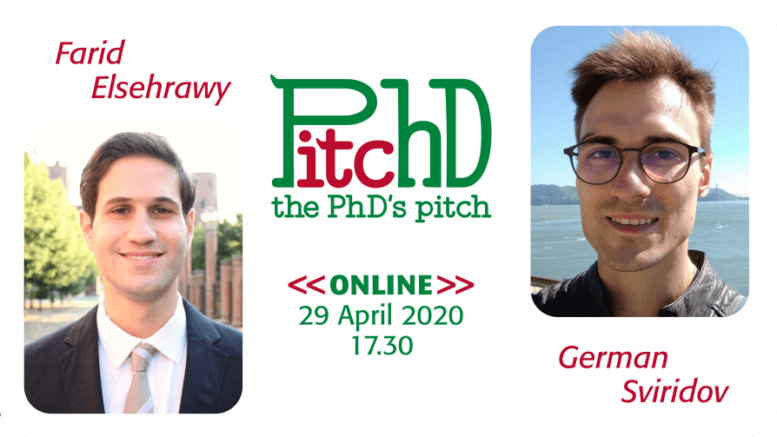YouTube Live Broadcast
Here’s the fourth PitchD – the PhD’s pitch of the new 2020 edition. Our PhD IEEE Student Members explain to students, colleagues and professors their research. For the fourth event, two PhD students with energy backgrounds will show insight into their work. Join us to listen to their PitchD.
Light-trapping enhanced thin-film III-V quantum dot solar cells
Mr. Farid Elsehrawy
Dept. of Electronics and Telecommunications (DET), Politecnico di Torino
The demand for a source of renewable energy has been the driving force to achieve significant advancements in the field of photovoltaic energy generation during the past decades. III-V quantum dot (QD) solar cells hold promising potential for the realization of multiple novel photovoltaic concepts. However, one of their essential limitations arises from the weak absorption coefficient of the QD layers as well as the difficulty to grow active regions with high in-plane QD density and to stack many QD layers. Light trapping allows overcoming limitations faced by QD solar cells and Intermediate Band (IB) solar cells that generally suffer from weak QD interband and intraband photo-generation. It can be used to increase the effective optical path length of the QD layers, thereby resulting in higher photogeneration and overall efficiency. Moreover, light trapping concepts allow the use of a thin active region while maintaining constant short-circuit current, thereby minimizing volume recombination losses and enabling a higher open circuit voltage. Thin-film solar cells are associated with a high power-to-weight ratio, an essential requirement in space applications.
Can AI improve your cloud gaming experience?
Mr. German Sviridov
Dept. of Electronics and Telecommunications (DET), Politecnico di Torino
Quality of Experience (QoE) assessment for video games is known for being a long and expensive process, typically requiring the active involvement of several human players under different network conditions while ultimately bringing limited transferability across different games. Noteworthy, QoE is correlated with the achieved in-game score, as player frustration will arise whenever their performance is far from what is expected.
Taking inspiration from this observation, we question ourselves if it is possible to simplify the QoE assessment task by substituting human players with artificial agents trained to play the same game under varying network conditions.
To answer this question we let our artificial agents play a set of retro games with different types of interaction, showing that the observed score degradation curves can be exploited in networking devices (e.g., by prioritizing scheduling decisions), reinforcing fairness across games, and thus enhancing the overall quality of gaming experience.
The event will be streamed on YouTube.
NOTE: since the format is different from the usual one, the credits for EEECE-POLITO PhD candidate cannot be guaranteed for this event.


Be the first to comment on "PitchD 2020 edition: the 4rd PitchD [ONLINE]"